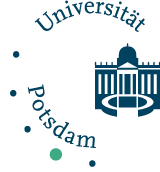Donatella della Porta
Donatella della Porta is professor of Political Science and Dean at the Institute of Human and Social Sciences at the Scuola Normale Superiore, where she directs the Center on Social Movement Studies (Cosmos). Her research on social movements, terrorism, political violence, and public order policing is of high international renown.
Born in Catania (1956), she graduated in Political Science at the University of the same city in 1978. In 1980, she received the Diplome d'Etudes Approfondies at the Ecole des Hautes Etudes en Sciences Sociales in Paris and in 1987 her PhD in Social and Political Sciences at the European University Institute. Based at the University of Florence since 1994 as associate professor, she became full professor in 1998. Between 2003 and 2015 she has been Professor of Sociology at the Department of Political and Social Sciences at the European University Institute.
Among the main topics of her research are social movements, political violence, terrorism, corruption, the police and protest policing.
Between 2003 and 2007 she headed the project DEMOS (Democracy in Europe and the Mobilisation of the Society), funded by the European Union under the 6th Framework Programme.
She currently directs a major ERC project Mobilizing for Democracy, on civil society participation in democratization processes in Europe, the Middle East, Asia and Latin America.
Between 2008 and 2013 she has co-edited the European Political Science Review (ECPR-Cambridge University Press) as well as the Contentious Politics series at Cambridge University Press. Since 2015 she co-edits the European Journal of Sociology (Cambridge University Press). In 2011, she was the recipient of the Mattei Dogan Prize for distinguished achievements in the field of political sociology. She is Honorary Doctor of the universities of Lausanne, Bucharest and Goteborg.
Citizenship Lecture January 12, 6pm | Campus Griebnitzsee, House 7, Room 2.27
Social Movements and Citizenship Rights in the Great Recession
Social movement studies have developed a useful kit of concepts and theories, well adapted to understand social movements in core capitalist countries in the peak of the growth of the welfare state. This is, however, insufficient for understanding global contentious politics in the year 2000s. In particular, assumptions about the role of political opportunities, resource mobilization and framing processes need to be updated when applied to different types of conflict, adding in particular a focus on the socio-economic conditions for protests. A dialogue between social movement studies and political economy is needed in order to help understand the ways in which the capitalist developments account for the specific forms social movements take but without forgetting the agentic strength of social movements as producers of social change. In particular, this theoretical dialogue could be useful in order to realize how it could happen that social groups which were weak in terms of material and symbolic resources mobilized, and even mobilized in their millions. But also, which are the forms that social movements are taking under these capitalist developments, which are their strengths and weaknesses? In order to answer these questions, it is important to understand how movements adapt to changes in capitalism but also, how they challenge them. This means we have to take into account the conditions of capitalism as constraining the environment but at the same time also recognize the agency of actors that could devise strategies to change structures.

